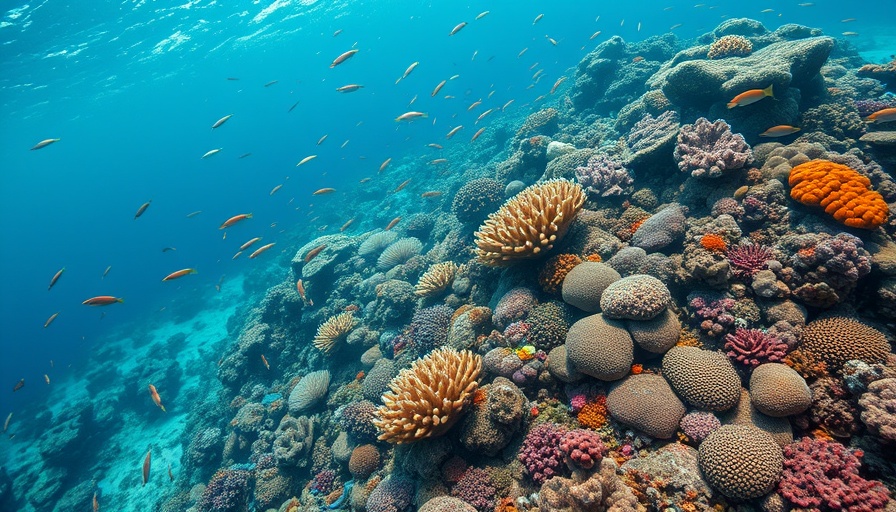
Why Protecting Marine Ecosystems Matters for Sustainable Travel
As the world becomes more conscious of environmental issues, the connection between tourism and marine ecosystem health is increasingly significant. In Vietnam, where marine tourism accounts for 60 to 70 percent of tourism revenue, the urgent need for sustainable practices is evidenced by alarming projections from the Institute for Tourism Development Research. By 2030, plastic waste generated by tourists could triple, reaching over 336,000 tonnes annually. This scenario raises grave concerns not only for wildlife but also for the health of seafood consumers and the overall tourism experience.
Environmental Pressures and the Need for Sustainability
The rapid expansion of Vietnam’s coastal and island resort offerings, coupled with marine sports and leisure developments, is putting immense pressure on local ecosystems. For example, issues like coral degradation and biodiversity loss due to pollution and overfishing are intensifying. According to Professor Dr. Nguyễn Thị Kim Cúc of Thủy Lợi University, plastic pollution disrupts marine ecosystems, which can subsequently enter the food chain, affecting public health and leading to a deteriorated tourism appeal.
Successful Conservation Initiatives Leading the Way
Amid these challenges, several initiatives illustrate the potential for positive change. In Nha Trang Bay, a coral reef restoration project has revitalized over 15 hectares of damaged reefs since 2015, with artificial reefs showing over 70 percent survival rates. This not only restores marine diversity but also enhances the allure for diving tourism. Similarly, in the Chàm Islands, the marine conservation program established in 2009 has preserved more than 16,000 hectares of sea area, supporting sustainable fishing practices and inviting approximately 200,000 tourists annually, generating around $30 million in revenue.
Community Engagement: A Vital Component of Marine Protection
Community involvement is crucial in sustaining these efforts. Campaigns like ‘Joining hands for a blue sea’ mobilize thousands of volunteers in cities like Đà Nẵng to clean up beaches and promote environmental awareness. Such collective action is energizing local stakeholders to take responsibility for marine health, essential for long-term tourism viability. Recently, around 10,000 volunteers participated in the ‘Act for a blue ocean’ campaign, which resulted in collecting 72 tonnes of waste in just one hour—a testament to the power of grassroots movements.
Government Policies Promoting Sustainable Tourism
Recognizing the critical need for sustainability, the Vietnamese government has initiated measures to mitigate plastic waste in tourism. Goals include eliminating single-use plastics and non-biodegradable bags from all tourist sites and accommodations by the year’s end. Such policies not only protect the environment but also resonate with the growing number of travelers seeking eco-friendly destinations. This shift could enhance Vietnam’s appeal as a global leader in responsible tourism.
Making Informed Travel Choices: A Call to Action
Travelers can play a part in this transformation. By choosing to visit destinations prioritizing sustainability, like those participating in marine conservation efforts, tourists contribute to the preservation of marine resources and promote responsible tourism. When planning your next trip, consider eco-tourism hotspots that respect nature and adhere to sustainable practices—your choices can have a tremendous impact on preserving our planet for future generations.
Final Thoughts on the Intersection of Travel and Conservation
As we navigate through pressing environmental issues, understanding the link between tourism and marine ecosystem health becomes increasingly vital. The future of travel depends on our collective action to protect these beautiful landscapes and oceans. Embracing sustainable tourism for personal enjoyment will help nurture marine ecosystems, paving the way for long-term growth in this sector and safeguarding our planet’s biodiversity.
 Add Row
Add Row  Add
Add 




Write A Comment